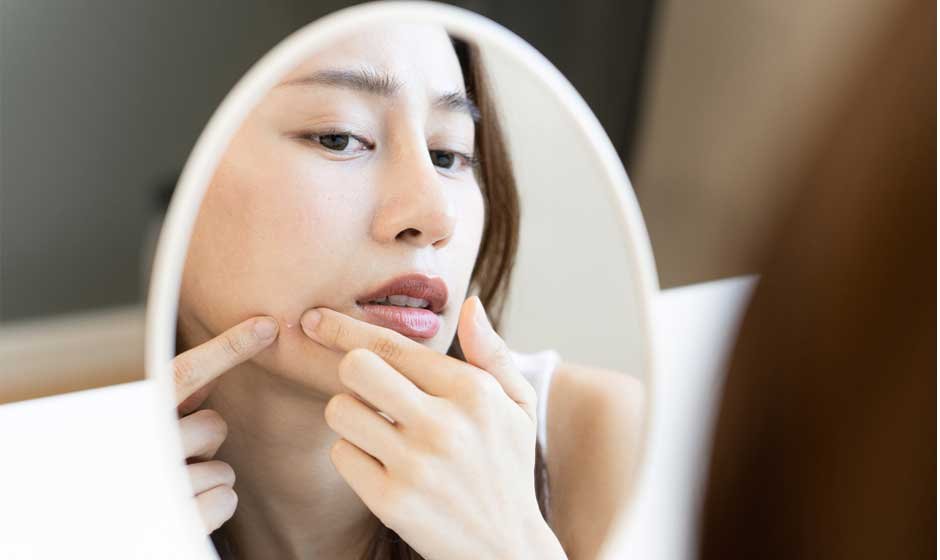As the temperatures rise and humidity sets in, your skin faces a new set of challenges. One of the most common skincare complaints during humid weather is clogged pores. Whether you’re dealing with blackheads, whiteheads, or breakouts, understanding how humidity affects your skin—and how to prevent these pore problems—is key to maintaining a healthy, clear complexion.
In this blog, we’ll explore practical, dermatologist-recommended tips to prevent clogged pores during humid months, with a special focus on using niacinamide serum for oily skin and choosing the right sunscreen for oily skin.
Why Do Pores Get Clogged in Humid Weather?
Humidity increases moisture levels in the environment, which can cause your sebaceous glands to produce more oil. When this excess oil combines with sweat, dirt, and dead skin cells, it can easily clog pores. Add to that heavy skincare or makeup products, and your skin becomes a breeding ground for acne-causing bacteria.
Signs your pores are getting clogged include:
- Persistent blackheads and whiteheads
- Increased breakouts
- Uneven skin texture
- Enlarged pore appearance
The good news? A few mindful changes to your skincare routine can help you beat the humidity and keep your pores clear.
1. Switch to a Gel-Based Cleanser
The first step in any skincare routine, especially during humid months, is effective cleansing. Swap your cream-based or foaming cleansers for a gel-based, non-comedogenic formula that’s specifically designed for oily or combination skin. These cleansers help to:
- Dissolve excess sebum
- Unclog pores
- Remove sweat and impurities without over-drying
2. Use a Niacinamide Serum for Oily Skin
Niacinamide, also known as Vitamin B3, is a powerhouse ingredient that regulates sebum production and improves skin barrier function—both crucial during humid seasons.
Using a niacinamide serum for oily skin can help:
- Minimize the appearance of large pores
- Reduce oiliness and shine
- Soothe inflammation and prevent breakouts
- Strengthen the skin’s natural barrier against environmental stressors
Apply niacinamide serum right after cleansing and toning, ideally twice a day. Choose a formulation with 5–10% niacinamide concentration for best results, and make sure it’s non-comedogenic and lightweight to suit oily skin types.
3. Don’t Skip Moisturizer (Choose Wisely!)
Contrary to what many believe, oily skin still needs hydration—especially in humid weather, when your skin can become dehydrated due to sweat loss.
The key is to choose an oil-free, water-based moisturizer. Look for labels like:
- “Non-comedogenic”
- “Gel moisturizer”
- “Oil-free hydration”
Ingredients like niacinamide and cica work wonders for oily skin by attracting moisture without adding grease.
4. Wear the Right Sunscreen for Oily Skin
SPF is non-negotiable, even on cloudy or humid days. However, traditional sunscreens can feel greasy and lead to clogged pores if not chosen wisely.
Opt for a matte finish sunscreen for oily skin that is:
- Broad-spectrum (UVA/UVB protection)
- Oil-free and lightweight
- Water-resistant
- Non-comedogenic
Look for sunscreens that also contain niacinamide or zinc, as they help calm inflammation while protecting your skin from sun damage. Apply sunscreen every morning and reapply every 2–3 hours if you’re outdoors.
5. Avoid Heavy Makeup and Occlusive Products
During humid months, thick foundations and heavy creams can suffocate your pores. Instead:
- Use breathable, non-comedogenic makeup
- Switch to tinted moisturizers or mineral powders
- Avoid petroleum-based occlusives that trap sweat and sebum
Your skin needs to breathe, especially when it’s exposed to higher temperatures and moisture levels.
6. Exfoliate Gently but Consistently
Exfoliation removes the build-up of dead skin cells, one of the main culprits of clogged pores. However, over-exfoliating can damage your skin barrier and worsen oil production.
Here’s how to exfoliate right:
- Use chemical exfoliants like BHA (salicylic acid) or PHA 2–3 times a week
- Avoid harsh physical scrubs that create micro-tears in the skin
- Follow exfoliation with hydrating serums like niacinamide to soothe and protect your skin
7. Keep Your Hands and Hair Off Your Face
This might sound basic, but your hands and hair can transfer oils, dirt, and bacteria to your face. Tie your hair back when outdoors or sweating, and avoid touching your face unnecessarily. Also, keep your phone screen clean—it’s another overlooked source of grime that can contribute to clogged pores.
8. Stay Hydrated and Eat Light
Internal hydration is as important as external skincare. Drinking plenty of water helps flush out toxins and maintain healthy skin. Additionally, avoid high-glycemic foods and dairy products that are known to increase oil production and trigger breakouts in some individuals.
Incorporate foods rich in:
- Omega-3 fatty acids (flaxseeds, walnuts)
- Antioxidants (berries, green tea)
- Zinc (pumpkin seeds, legumes)
These nutrients support clearer skin and help regulate oil production naturally.
9. Maintain a Consistent Routine
Humidity can be unpredictable, but your skincare routine shouldn’t be. Avoid switching products too often, and give each product time to work—especially active ingredients like niacinamide or salicylic acid.
Morning Routine Example:
- Gel cleanser
- Niacinamide serum for oily skin
- Lightweight moisturizer
- Sunscreen for oily skin
Evening Routine Example:
- Cleanser
- Exfoliant (2–3x a week) or toner
- Niacinamide serum
- Oil-free night gel or moisturizer
Final Thoughts
Clogged pores are a common concern during humid weather, but with the right skincare steps, you can keep your skin fresh, clear, and balanced. Prioritize oil control, hydration, and protection by integrating essentials like a niacinamide serum for oily skin and a reliable sunscreen for oily skin.
Remember, prevention is easier than cure—so stay ahead of the humidity, and your skin will thank you!










